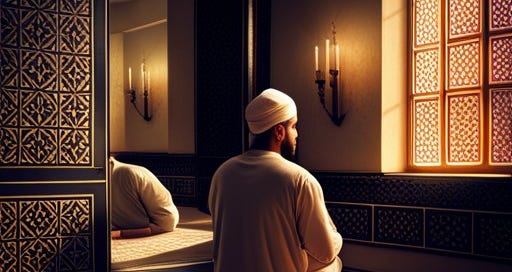Who are You, Really?
“What do you want to be when you grow up?”
This is one of the most common questions we ask a child.
It’s also actually one of the most dangerous.
Sure, it seems harmless enough. And perhaps it will dare them to dream. Perhaps it will give an insight into what they’re interested in. Maybe it could plant a seed.
But it’s the wrong line of questioning entirely.
Because it gets them thinking ‘what’ they want to be, instead of ‘who.’
It pre-frames them for a life dedicated to whatever career they end up choosing, and their entire identity and worldview become predicated upon it.
It sets them up defensively for avoiding failure, and that their only way of being accepted and loved is by being something valued high in society.
The status seed is planted.
Many kids will say doctor, astronaut or even president.
Today, they might say a YouTuber or a TikTok influencer.
For some, it panics them that they don’t have any idea unlike everyone else seems to and so they clutch at straws and say anything that seems acceptable to their peers, teachers and families.
"By the time we’re old enough to contemplate our own identity, we already have one. By then, the way that we see the world is framed by our prior conditioning. That conditioning informs every choice that we make—even the choice to rebel against that conditioning." - R. Martinez
Knowing what you want to do in life as a child is the rarest exception.
Those who do, often are from privileged backgrounds or have been groomed towards a certain path.
The brain doesn't even finish developing until the mid-20s, and the mind continues to develop throughout life.
There are constant experiences and data points you need to consider when figuring out where you would add most value in the world.
Chances are, by the age of 16-17 (when you make such decisions), you haven’t quite experienced enough of life to make such life-changing decisions.
Sure, you can use your childhood as hints and inputs, but don't hold yourself to try and become someone you no longer are. Just because you studied a certain subject, it doesn’t mean your best chance of success is in that field you studied. It’s often just sunk costs and expectations which causes us to follow through with something we may not actually really align with.
When I was a kid, I wanted to be a journalist but if you gave me a job today heading up the The Times or the Sun I’d be bored out of my brain.
As a student, I studied law but if I went on to try and become a high-powered lawyer a la Harvey Specter I’d probably end up miserable.
Asking the question WHO do you want to be is an infinitely better question. As then you may look at other aspects that makes up the human.
You can choose to become someone who is generous, or passionate etc and be aligned with your true self.
“Now nothing is nearer to you than yourself, and if you don't know yourself how can you know anything else?” - Imam Ghazali
So, how do you define what makes you, you?
It’s harder than it looks. They say, if you know 400 people, each of those people are likely to know a slightly different version of you, which means there are potentially 400 different ‘you’s out there!
2,600 years ago the ancient Greek poet Pindar wrote, “Become who you are by learning who you are.”
You are born with a particular makeup and tendencies that mark you as completely unique. It is who you are to the core. Some people never become who they are; they stop trusting in themselves. External influences shape them. They copy others’ recipes and models for success. They conform to the tastes of others, and they end up wearing a mask that hides their true nature. They become a character. And sadly, they never, ever discover who they REALLY are - therefore never fulfil their purpose or potential.
“I realized that I could lose myself in a character. I could live in a character. It was a choice. And when I finished with that, I took a month to remember who I was. ‘What do I believe? What are my politics? What do I like and dislike?’ It took me a while, and I was depressed going back into my concerns and my politics. But there was a shift that had already happened. And the shift was, ‘Wait a second. If I can put Jim Carrey aside for four months, who is Jim Carrey? Who the hell is that?’ ... I know now he does not really exist. He’s ideas. ... Jim Carrey was an idea my parents gave me. Irish-Scottish-French was an idea I was given. Canadian was an idea that I was given. I had a hockey team and a religion and all of these things that cobble together into this kind of Frankenstein monster, this representation. It’s like an avatar. These are all the things I am. You are not an actor, or a lawyer. No one is a lawyer. There are lawyers, law is practiced, but no one is a lawyer. There is no one, in fact, there.” — Jim Carrey
In Islam, we have something called the fitrah - which is our innate disposition. This is who we truly are, and who were when we were born. The fitrah often gets lost under all the external experiences, stories and beliefs and we deviate from it, in order to ‘fit in’ to society and to avoid the pain of getting ridiculed. The new identity takes over and we forget our true selves.
And what’s more - uncovering your fitrah is the key to connecting with God. There’s an Arabic proverb which says: “He who knows himself knows his Lord.”
So I’ll ask the question again.
Do you know who you REALLY are?
If you want to figure this out for yourself, please check out our free training and book a FREE discovery session with our team where we can go deep into helping you to understand who you truly are and how you can make the most impact in the world.






